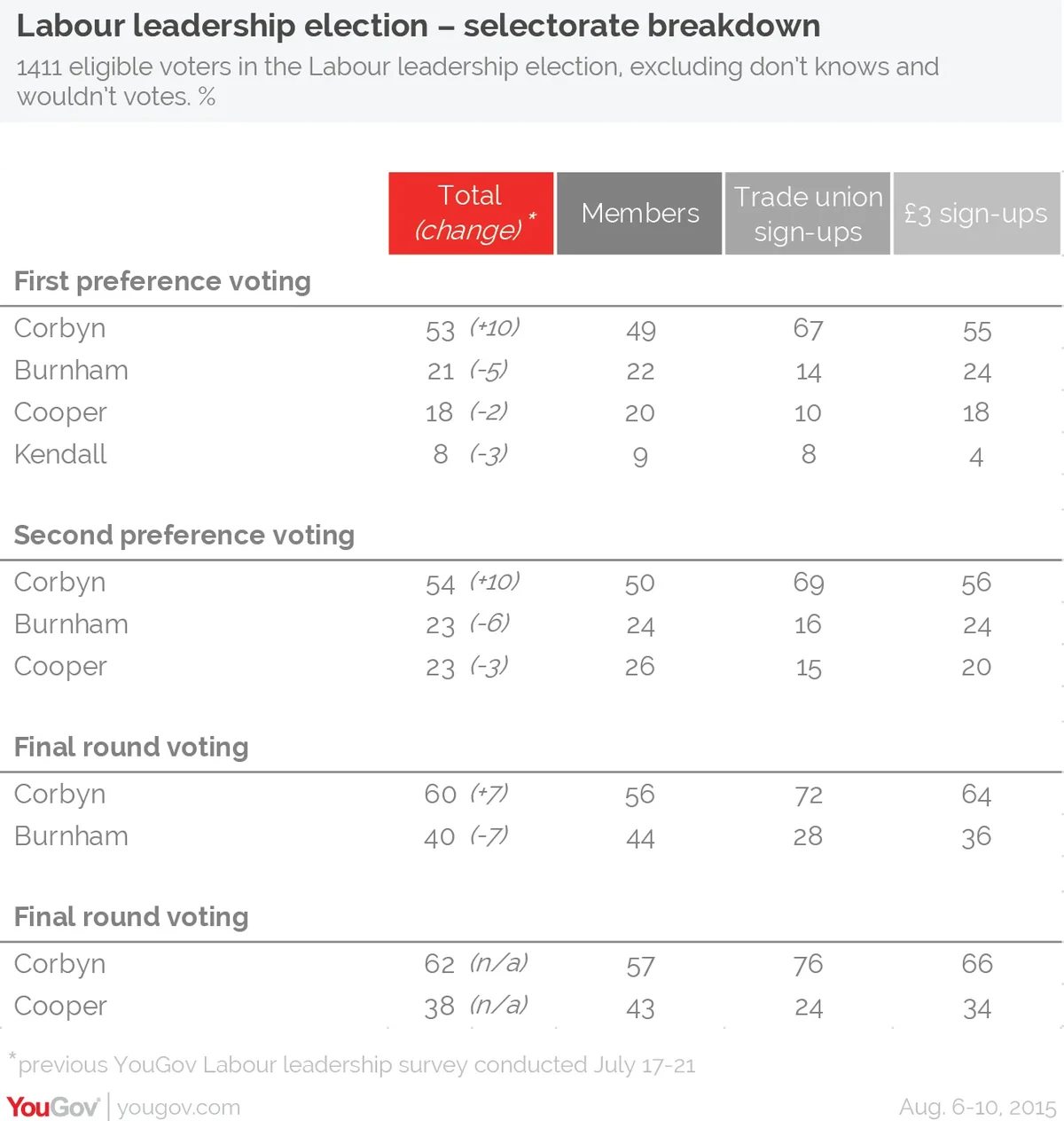At this stage, can we be really certain that Jeremy Corbyn is doing as well as YouGov’s latest survey suggests?
For full data click HERE
If Jeremy Corbyn is elected Labour’s new leader, the consequences for the party and, indeed the future of British politics, are likely to be profound. At this stage, some days before the ballot papers are sent out, can we be really certain that he is as far ahead of his rivals as YouGov’s latest survey suggests?
Let us separate those things we know from those things of which we cannot be certain. We know, from party sources, how Labour’s selectorate divides between full party members and those who have signed up, either via their trade union or by paying £3, to vote in the leadership election.

We polled 1,411 members of YouGov’s half-million strong panel who we know from previous recent surveys have the vote in the current contest. They comprise 729 people who were already full members of the Labour Party at the time of this year’s general election, and 682 who have joined the selectorate since then. The relative sizes of these two groups match the division of the selectorate into 200,000 pre-May party members, and 190,000 people who have signed up in some way since then to vote in the leadership contest.
We also know how many full members belong to each gender, region and age group. Crucially, we also know how many full members first joined the party before 2010, between 2010 and this year’s election, and since May. We have weighted our raw data to match these figures.
However, we do not know other things that might have a bearing on how people vote. Only 33% of our sample are working class electors (compared with 43% in the electorate as a whole). This could be too low. If it is, then we might be understating Corbyn’s support, as he does slightly better with C2DE members of Labour’s selectorate than ABC1 members.
Our raw data finds that slightly more people who voted in the last leadership election backed Ed Miliband rather than his brother David, even though David won more votes among individual party members. We have weighted our data to reflect the votes cast five years ago. As Ed’s supporters are far more likely than David’s to back Corbyn, this adjustment has the effect of slightly reducing Corbyn’s overall vote share. If, as some people have suggested, more of David’s supporters have left the party since 2010 than Ed’s, that slight adjustment might be wrong; Mr Corbyn’s support could be slightly higher than we think.
On the other hand, we have three times as many Guardian-reading (and heavily pro-Corbyn) party members as Mirror readers (who divide evenly between Corbyn and Burnham). Could we be exaggerating the power of the Guardianistas and missing some traditional Mirror-reading, Burnham-supporting voters? To explore whether this might affect our findings, we adjusted the data to equalise the number of Mirror and Guardian readers in Labour’s selectorate. This reduces Corbyn’s first-round support by just two points, to 51%, and raises Mr Burnham’s support to 23%.
Most crucially of all, not a single vote has yet been cast. The deadline for Labour’s selectorate is a month away. They have time to change their minds. Could some people who now say they support Corbyn draw back at the moment of decision – or, alternatively, does his bandwagon have further to roll?
For all these reasons, our latest results provide a situation report rather than a firm prediction of the final figures.
PA image








